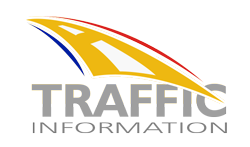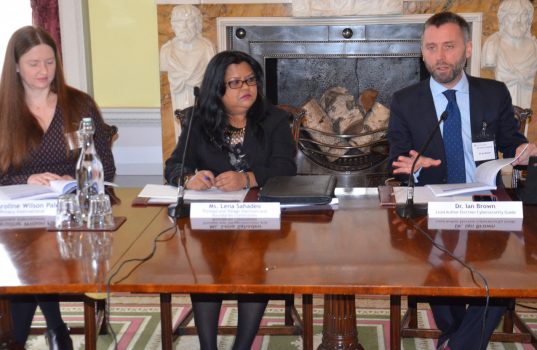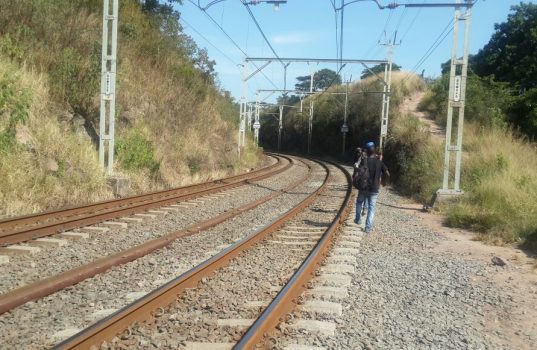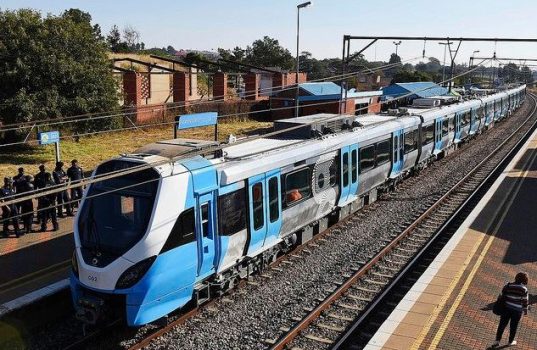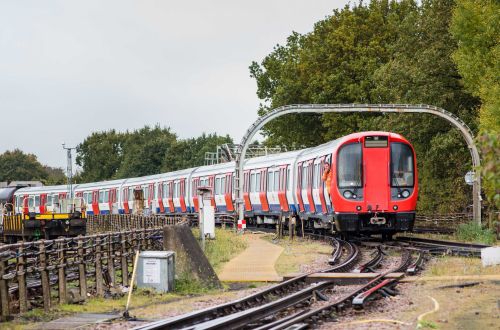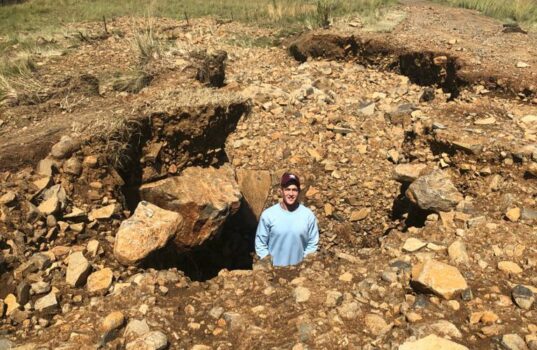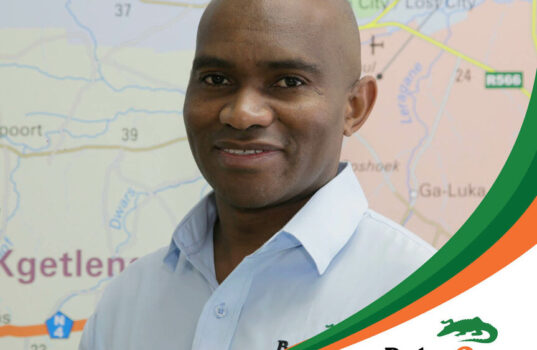December 10, 2018 •
Accidents •
Jonckie •
Comments Off on UIC, the worldwide railway organisation, has successfully held its 93rd General Assembly
The
Executive Board meeting and the 93nd General Assembly of UIC, the
worldwide railway organisation, were held on 7 December 2018 at UIC
headquarters. The meetings were chaired by Mr Gianluigi Vittorio Castelli,
Chairman of Ferrovie dello Stato Italiane (FS) and UIC
Chairman, in the presence of Mr Jean-Pierre Loubinoux, UIC Director
General and Mr Isa Apaydin, Chairman of the Board and Director General of
Turkish State Railways (TCDD) and Vice-Chairman of UIC. A keynote speech was
given by Mr Jean Todt, President of the International Automobile Federation
(FIA).
Jean-Pierre Loubinoux, UIC Director General, said: “This 93rd UIC General Assembly was successfully organised
at UIC HQ in conjunction with two UIC Regional Assemblies (the African Regional
Assembly and the European Regional Assembly) and also two special events. One,
a very high-level panel, attracting members and partners with a panel composed
of high-ranking speakers such as Ms Nancy Vandycke, Programme Manager,
Sustainable Mobility for All initiative & Economic Adviser at the World
Bank, Mr Young Tae Kim, Secretary General of the International Transport Forum
ITF, Mr Don Upson, Co-founder of CES Las Vegas, Mr Bebop Gresta, Chairman
of Hyperloop Transportation Technology, Mr Gianluigi Vittorio Castelli,
Chairman of UIC and Mr Jean-Daniel Tordjman, President of the Club of
Ambassadors. At the same time was also organised the fourth UIC Digital
Conference and the third remit of the Digital Awards. All these awards to
startups, together with the UIC Innovation & Research Awards, gave the
opportunity to young students or young startup companies to share their
expertise and their interest in rail development within UIC. All these events
organised during the 6th and 7th of December gave the possibility to members
and partners and the staff of UIC to openly share and connect their knowledge,
their work and their aspirations to develop forward our association at the
service of the rail worldwide community”.
UIC Governance
The UIC General Assembly elected Mr Castelli as UIC Chairman and confirmed the
renewal of the mandates of FS and TCDD (2019-2020) to guarantee stability of
governance and continuity of business. Mr François Davenne will succeed Mr
Loubinoux as UIC Director General as of mid-2019 (after a six-month transition
period) for a four-year mandate. Mr Davenne said: “My mission will collectively be to define what can be rail
perspectives. I will learn from all of you internally and externally. Thank you
for your great confidence”.
Report from the UIC
Chairman
“First of all, I would like to
take this opportunity to thank my predecessor, Renato Mazzoncini, who led UIC
in boosting cooperation in the railway sector worldwide. In August, I was proud
to take over the mandate that was given to Renato and I am pleased to ensure
the continued FS commitment. Bringing value to the work of our association for
the benefit of its members and our customers will remain my main goal. The
takeover of the chairmanship arrived in a challenging time for UIC, as we are
currently managing the transition of the Director General of Services.
Jean-Pierre Loubinoux has served for more than ten years with outstanding
commitment and dedication. Finding his successor was not an easy task, but we
reached a census in the last General Assembly. Mr François Davenne will serve
as new Director General of UIC after the six-month transition period for a
mandate of four years.
Let me say that the renewal of
the mandates of FS and TCDD (2019-2020) will give us the opportunity to advance
as smoothly as possible for the sake of stability of governance and continuity,
in line with the UIC statute. Mr Apaydin and myself met in Berlin in September
and we agreed we will supervise this transition period carefully”.
He added that “In 2018, UIC and its members confirmed
the capacity to organise a number of successful activities and events that
brought us to work together and in partnership with all the stakeholders
involved in the mobility and environmental sector […]. Among the
major ones, the first Global
System Conference on Signalling & Telecom, tenth World Congress on High
Speed Rail, the International Level Crossings Awareness Day (ILCAD), the sixth
UIC Global Rail Freight Conference”.
Next steps
Mr Gianluigi Vittorio Castelli said that “All
of this gives us evidence of the vitality and creativity of railway companies
and infrastructure managers around the world and demonstrates the rail operator
community’s readiness to meet new and even more ambitious challenges”.
He then discussed some of these challenges in greater detail.
Digitalisation and Digital
Transformation
“The brief list of actions and
achievements I just described show that the rail operating community (ROC)
understands the benefits of digitalisation and that it can master to a certain
extent the pervasive application of secure, ubiquitous and reliable digital
technology across all aspects of its corporate, industrial and commercial
operations.
Digitalisation, however, is
not an end in itself: it should be viewed rather as a shift to a new
technological base similar, to a certain extent, to the move towards the
electrification of the rail system in the last century. Digitalisation, in
fact, underpins all other technological advances, some of which, as we have
seen, are already being deployed by UIC members worldwide in a great variety of
areas including automation, intermodal and logistics integration, operations
management, energy management, customer-centricity of passenger and freight
solutions, and others. But digitalisation technology must give us more than
that – it must provide us with the new technical, organisational and business
capabilities that are required to anticipate and respond to changing customer
habits and needs with new tailored services. It must allow us to design and
adopt new business models to bring these services to market; to anticipate and
respond to challenges emerging from new “digital native” competitors. It must
also enable us to access new sources and instruments for financing, to leverage
new sources and organisational models of skilled human resources, to establish
and manage networks of innovation partnerships, just to name a few.
In other words, we must use
digitalisation to enable a comprehensive human and industrial transformation –
a digital transformation – of rail companies into effective actors of the
digital economy, which is where demand for mobility is increasingly being
generated by citizens and businesses who, themselves, already live and work in
a digital environment.
Promoting and accelerating
this transformation should be our next goal, for which UIC members worldwide
have been equipped with a powerful tool: the UIC Digital Platform”.
Research and Innovation
“In the Digital Platform’s
initial outcomes feature a template of how we can move UIC from an organisation
that merely “houses” projects to a global shared R&D organisation of the
sector that can shape the future of rail mobility. I’d like to suggest that
collaborative worldwide research and innovation on hard challenges facing the
sector should become, in fact, UIC’s main mission in the coming years, pooling
human, financial and material resources of willing members.
It is in the context of this
renewed mission that, furthermore, UIC will be able to reinforce its reputation
and standing vis-à-vis the institutions and other industries, and to bring to
actual fruition new instruments such as the formal agreements with the UITP and
other organisations, or the UIC TrainRail initiative you will hear about later
in the meeting.
Finally, R&D can, and
should, become the principal engine that feeds the standardisation process with
ground-breaking International Railway Solutions (IRS) on which so much of the
economic competitiveness of the sector depends”.
Mr Castelli also spoke about automation and robotics and platform businesses
(Amazon, Google, Uber), amongst other subjects.
International Railway
Corridors
“Freight corridors are
developing throughout Asia-Pacific, linking east to west and involving
different initiatives and projects from many stakeholders, including
intergovernmental organisations, funding institutions and multimodal companies,
with railways forming the backbone. However, successful business and operations
should be supported by internationally-recognised and applied interoperable
solutions and standards that we must keep pursuing at UIC”.
Standardisation
“Standardisation is a key tool
to increase the development of our business and a crucial component in terms of
competitiveness.
UIC is the fundamental body
for the ROC as it is the most railway operation and service-oriented one. As
its core business, UIC provides solutions for those operations issues that the
ROC faces on a daily basis. Through its framework of voluntary, consensus-based
standards, International Railway Solutions (IRS) provide a vital economic and
safety-related support to developing the railway system of tomorrow.
The aim is to develop quality
support for the design, construction, operation and maintenance of the services
that the railway operating community provides to the end user.
IRSs are a really useful
technical basis for procuring goods and services. They are a useful technical
support for appropriate regulation. Most importantly, IRSs must lead to cost
reduction options that support system development through product and system
optimisation and best practices. I am deeply satisfied with the recent creation
of a transversal unit dedicated to standardisation issues. Its first year of
work – and with 44 leaflets approved – demonstrated clear signs of dynamism and
useful tools such as a work programme. Moreover, I am very pleased about the
renewed confidence and smooth relations with the standardisation bodies and
manufacturers.
I strongly support the need
for reducing competition with those bodies and developing complementarity. Both
will lead to an optimum efficient use of limited human and financial resources.
I must also underline the great effort put in developing quality and
time-efficient standardisation processes”.
Sustainable Development and
the Economic footprint study
“The 17 Sustainable
Development Goals (SDGs) came into effect in January 2016, and they will
continue to guide UN development programme policy and funding until 2030.
Achieving the SDGs requires the partnership of governments, private sector,
civil society and citizens alike to make sure we leave a better planet for
future generations. There is no country in the world that is not experiencing
first-hand the drastic effects of climate change. Greenhouse gas emissions
continue to rise and are now more than 50 per cent higher than their 1990
level. Further, global warming is causing long-lasting changes to our climate
system, which threatens irreversible consequences if we do not take action now.
UIC can play an important role highlighting the importance to invest in railway
transport.
The economic footprint study is an initiative that needs to be
expanded and deepened, because it brings benefit to all companies and to the
industry as a whole. I would expect that the footprint on economy and society
provides the full rail picture and I would say more when we get to this point
in the agenda”.
Mr Castelli concluded by saying:
“Associations like UIC exist and serve for long-term objectives and need to
have also a long-term agenda. Interoperability and leaflets are one of them, a
platform to exchange technical know-how is another.
Other strategic long-term
priorities might be found among the Strategic Development Goals and we will
reflect how to better focus on that.
My final personal commitment:
I believe it is very important to keep cooperating and close the gap that exists
among the UIC Regional Assemblies, which I am planning to attend. Listening
carefully to the regional interests could be the bridge to further develop
global initiatives.”
Mr Isa Apaydin, Chairman of the Board and Director General of Turkish State Railways
(TCDD) and Vice-Chairman of UIC, said “I
would like to suggest our members and community focus on the activities where
knowledge and experiences will be shared mutually in line with the targets
below:
– Providing a safe, fast and
comfortable railway operation in accordance with the latest technological
developments,
– Integrating the railway
infrastructure with other modes of transportation,
– Ensuring an efficient
capacity and safe traffic management system in the international railway
network,
– Increasing the productivity
of the labour and machinery by applying effective maintenance and repair in the
railway lines”.
Report from UIC Director
General on the organisation’s activities
UIC Director General, Mr Jean-Pierre Loubinoux, gave an overview of the main
activities performed at UIC headquarters and by UIC’s working bodies over the
past year.
He highlighted the various actions undertaken during 2018 to keep the
association stable. These actions can be categorised under the 3 Ps
(productivity, professionalism and promotion). In terms of productivity, income
expenses were kept under control, resulting in a slight surplus in the
accounts, and auditing tools were also improved. With regard to
professionalism, numerous initiatives were deployed both internally and
externally to improve the efficiency of UIC staff at the service of its members
and to better explain the added value of UIC to the members through the “UIC
Days” and new e-learning training sessions. In respect of promotion and in the
context of UIC’s efforts to develop awareness of the association through social
media, it is important to highlight that more than 200 websites developed by
UIC attract 200,000 visits each month (for uic.org). All of the strategic
issues in terms of governance, standardisation and technical competencies
identified as objectives at the beginning of the year were fulfilled. Statutory
meetings (regional and general assemblies) have been maintained under the
programme and will be planned for the years to come.
The Standardisation unit has been very successful in the development and
publication of 44 IRSs this year – a figure that exceeds the initial target
set.
In terms of technical competencies, it should be noted that the overall
portfolio of ongoing opt-in and external projects will be more than 15 million
euros this year, with the objective of keeping indispensable technical
expertise within UIC. As far as strategic developments are concerned, 12
memoranda of understanding were signed or updated in order to enhance UIC’s
positioning worldwide and with other partners. Mr Loubinoux also highlighted
the publication of the eco footprint study and the eco-scoring process
initiative. Finally, he indicated that 16 new membership applications were
received this year and that the schedule for 2019 included a 94th General
Assembly in Budapest at the end of June and in Paris in December.
Appointments
UIC Director General Mr Jean-Pierre Loubinoux announced the following
appointments within UIC working bodies and UIC HQ:
– The UIC Safety Platform, which met on 15 November, elected Mr Rolf Härdi, CTO
of Deutsche Bahn as its Chairman for a two-year mandate.
– Mr Jaroslaw Golebiewski, representative of the Management Board for Finance
at PKP, replaces Mr Daniel Rymarz and will complete the mandate.
Regional reports
Mr Vyacheslav Pavlovsky, Deputy Chief Executive Officer of Russian Railways
RZD, on behalf of Mr Belozeriv, Chairman, summarised the UIC Asia-Pacific
Region 2018 activity programme based on growth, quality and agility and
presented new activities, such as joint training programmes, development of
passenger rail transport and railway tourism.
Mr Mohamed Rabie Khlie, Director General of Moroccan Railways ONCF and Chairman
of the UIC Africa Region, presented the 2018 African context, achievements (14
actions including four seminars, two training sessions, one awareness-raising
activity and seven rail promotion activities), as well as the 2019 action plan
(including the UIC African Digital Summit, to be held in Cape Town at the end
of February 2019).
Mr Guilermo Quintela of EDLP, Chairman of the UIC Latin America region,
presented the current railway situation in Brazil, Uruguay, Argentina and
Chile, as well as the expected interaction with funding institutions, relationships
with universities and the 2019 programme of work.
Mr Francisco dos Reis, member of the Board, Infraestruturas de Portuga IP and
Chairman of the UIC European region, presented the 2030 freight forwarders’
strategy and challenges for the UIC European region: regional vision, technical
priorities, the need to develop closer interaction and coordination with other
stakeholders, closer interaction with other UIC regions, managing quality and
processes and how to increase the commitment of CEOs and members
Mr Isa Apaydin, Chairman of the Board and Director General of Turkish State
Railways (TCDD), and Vice-Chairman of UIC, presented the current situation in
Afghanistan, Iran, Saudi Arabia, Turkey and Jordan and recent activities in the
UIC Middle East region.
Mr Yves Desjardins-Siciliano, CEO Of VIA Rail Canada, Chairman of the UIC North
American region, presented the actions taken by the region in 2018, including
the publication of a strategic vision and a digital session organised in June
at the Federal Railroad Administration (FRA) in the context of the UIC Regional
Assembly for North America held on 12 June in Washington. Mexico joined the
region this year under the new membership of ARTF (Regulatory Agency for Rail).
Finance
The 2018 accounts show stability at UIC, with a slight positive surplus. Mr
Thierry Béra, Finance Director, recalled the three-year business plan and
announced an increased budget for standardisation activities in 2019. The UIC
General Assembly noted the expected results for 2018 and approved the 2019
budget.
Memoranda of understanding
A review of memoranda of understanding signed or updated this year was
performed during the General Assembly. Organisations concerned by these
agreements with third parties include: CETMO (the Centre for Transportation
Studies for the Western Mediterranean), NEPAD, APTA (revised MoU), FERRMED, IEA
(agreement), ADB, UNFCCC, CEN-CENELEC. The revised MoU with APTA (American
Public Transportation Association) was signed during the General Assembly by Mr
Jean-Pierre Loubinoux and Mr Paul Skoutelas, President and CEO of the American
Public Transportation Association (APTA).
Standardisation
Mr Simon Fletcher, Chief Standardisation Officer, together with Mr Laurent
Schmitt, Chairman of the UIC Standardisation Platform, presented the results
achieved in 2018, the number of IRSs published, the migration strategy as well
as an action plan for 2019. The schedule for migration of UIC leaflets is
advancing well and the publication target set at the beginning of the year is
expected to be met. They also announced that the UIC CODE – the catalogue of
all existing leaflets and emerging IRSs – is currently under review.
The UIC General Assembly approved the ongoing developments in the field of
standardisation, the revised version of the UIC CODE and the guidance document
for the development of International Railway Solutions (IRS).
Quality
UIC members were informed that the AFNOR (French association of normalisation)
audit will take place from 7 to 10 December with the aim of confirming UIC’s
certification. UIC Chairman Gianluigi Vittorio Castelli said “This certification is an important
milestone for the association, for all the UIC members and the association
itself”.
Research
Mr Boris Lapidus, Chairman of IRRB (International Rail Research Board),
presented the organisation’s annual report with an update on the work of the
working groups as well as the work programme for 2019. A special ceremony also
took place during the UIC General Assembly to award the six category winners of
the 4th edition of the UIC Research and Innovation Awards. The winners are
listed in a separate UIC press release.
Digital
An overall debriefing on the fourth UIC Digital Conference, successfully held
on 6 December 2018 at UIC, was provided during the Assembly. During this
conference, prizes were awarded for the third edition of the UIC Digital
Awards. The winners are listed in a separate press release.
A review of 2018 was also provided (UIC participation in CES in Las Vegas, PoCs
with the UIC Rail System Department, PoC on Blockchain on the occasion of the
UIC Global Rail Freight Conference, UIC digital tour in China, publication of
the sixth edition of the UIC Digital Progress paper) and the roadmap for 2019
was presented. Key events and developments in 2019 will include UIC
participation in CES at the invitation of the CES Chair, the first UIC African
Rail Digital Summit in Cape Town on 25 and 26 February 2019, the first UIC
Global Digital Conference in Brussels on 3-5 June in partnership with Infrabel,
the UIC Digital Days in September and the fifth UIC Digital Conference and
Digital Awards in December 2019. A progress report was also provided on the UIC
DIGIM (Digital Impact on Business) project, a global project in which six UIC
members are taking part.
Global activities for 2019
Global activities for 2019 were presented to the members. They include the
footprint study, eco-scoring (covering non-financial ratings, carbon credit,
green bonds, external costs and other ways to access green funding) and
security activities. For 2019, in addition to its ongoing activities, the UIC
Security division will continue and develop the activities initiated in 2018:
the new SIA (sabotage/intrusion attacks) working group, the network of quick
responders and the UIC rail security hub. The SHERPA EU-funded project (Shared
and CoHerent European Railway Protection Approach) coordinated by the UIC
Security division started in November 2018 and will be run over two years. DB
AG, SNCF, SNCB, FS and PKP SA are taking part in the project as members of the
consortium.
Mr Jean-Pierre Loubinoux thanked the UIC Security division for its work on the
recent launch of the UIC rail security hub and the network of quick responders
and lauded its cooperation with UIC members, taking into account their needs
and expectations and disseminating security-related information, which will be
improved over the coming years.
In the field of talent and expertise development, a new structure at RailUni
Net was presented to the members. RailUni Net will become TrainRail
(International Rail Education & Training Board). In the current context of
rail companies’ growing interest in enlarging their human capital and the
increased need to cooperate in a globalised, ever-growing interconnected and
digitalised world (with impact on new skills), UIC has implemented several
initiatives within the framework of the talent and expertise development
platform.
The latest discussions have demonstrated the need to take a comprehensive
approach in order to attract and retain the best talents in the rail industry.
To follow up on the decision validated at the 92nd UIC General Assembly, a
proposal was put forward to create a more powerful cooperative tool that will
synergistically combine the efforts of all stakeholders with an interest in
rail education and training through an international board called TrainRail.
Membership
Six new UIC members were welcomed at the General Assembly:
Africa:
-EDR (Ethio-Djibouti Railway, integrated company) as affiliate member
Asia-Pacific:
-PNR (Philippines National Railways) as associate member
-SRT (Thai integrated company) as associate member
-Sydney trains (integrated company) as associate member
Europe:
-ENTUR (Norwegian Sales and Distribution Company) as affiliate member
-Eurorail Cargo (new Serbian freight and logistics operator) as affiliate
member
The next UIC Executive Board and 94th General Assembly will be held on 25 June
2019 in Budapest at the kind invitation of Hungarian Railways (MAV).
Jonckie • Comments Off on UIC, the worldwide railway organisation, has successfully held its 93rd General Assembly
Read More
